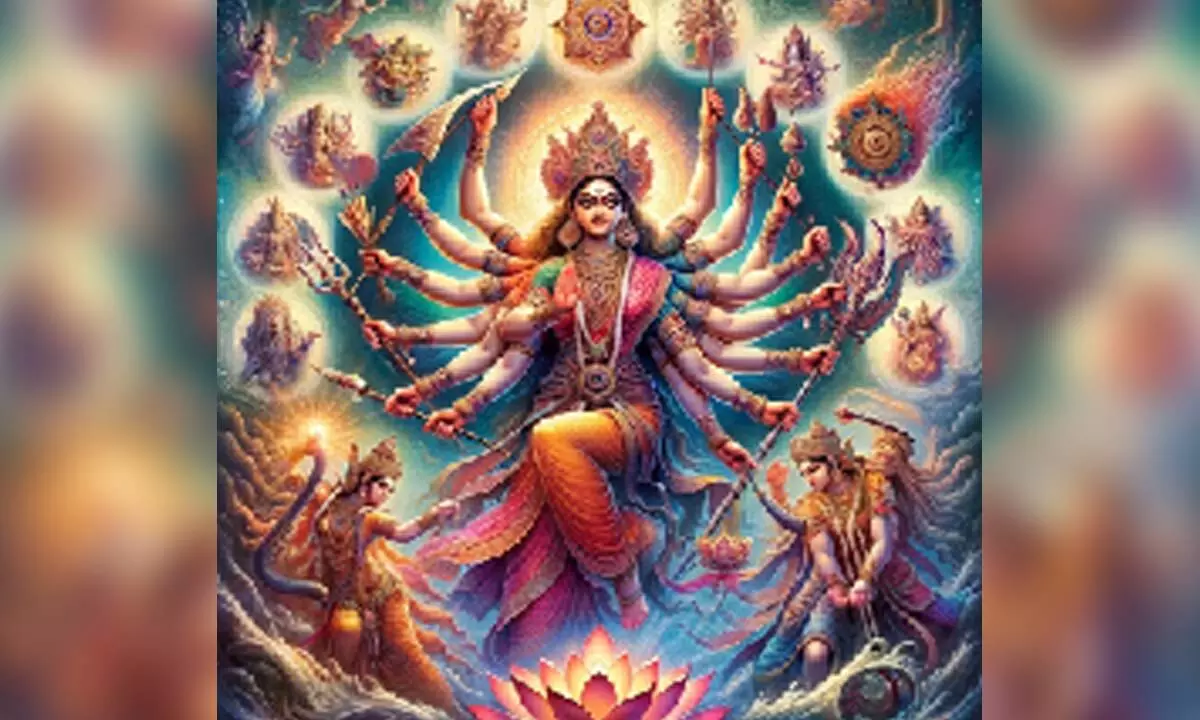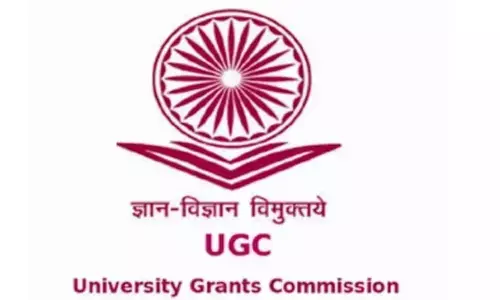Are we to protect gods or explain them?

Recently, while coming out of a temple of goddess Durga, I asked a friend who accompanied me, ‘what did you pray for?’.
Recently, while coming out of a temple of goddess Durga, I asked a friend who accompanied me, ‘what did you pray for?’. ‘If the goddess is safe, we are safe’, was his reply. His reply had several meanings. Is there a threat to gods? Are we the protectors of gods? Have the gods given a mandate to us to protect them?
In their zeal to promote a deity, people offer several schemes. The primary scheme is punyam, a spiritual merit, which depends on the degree of devotion or penance, or offering to the deity. This spiritual merit brings material benefits during this life and benefits in the afterlife. Each tradition or religion has its own version of heaven, its own idea of comforts, its own version of wine and women. There are, of course, heavenly worlds for pious and saintly people where spiritual discourses continue in that heaven.
All over the world, promoters of all religions and traditions seem to have devised some schemes to protect their favourite god or goddess. In India we see several puranas illustrating such schemes, with detailed stories of those who worshipped the deity and got their desires fulfilled. There are stories with negative examples too, in which those who ignore the deity get punished badly. We see the picture of a faction leader, a truly vengeful god.
We forget the real nature of God because of these allurements. These are merely to induce an utterly lay person into the path of devotion. Those who do pravachans will do great service if they also explain the significance of such stories.
There is a book named ‘Brahma Sutras’ examining the nature of the Supreme Reality, which we may call God. As the name indicates, it has several sutras, aphoristic statements, which describe the nature of Reality. Does it have a form and function, does it have a dwelling place, does it interact with us, does it love its followers and hate those who do not follow, and so on. There are sutras for and against a point under debate. For instance, if we take the issue, ‘does God love his followers and hate others’ there are arguments for and against, and a conclusion is given. There is a topic named – ‘debate on partiality and unkindness’ (from sutra 2-1-34). There are arguments for and against. God creates someone poor and another rich. One is handsome and another is crippled. Is God partial to some? The discussion concludes that God has no partiality for someone and no unkindness to another.
Indian texts make shocking statements too. For instance, the Gita (5-15) says, ‘the All-pervading entity does not take note of anyone’s sins nor merits. Truth is enveloped by ignorance, and we get deluded’. But Its (His) benevolence is for all – good and bad actions get their results accordingly. In our ignorance we call ourselves sinners. Without realizing his real identity as not different from the All-pervading, the jiva identifies with physical nature (prakriti) and gets bound in the cycle of life and death, shuttling from heaven to hell and to earth.
People who promote their gods do not take note of such words. Innocent schemes like punyam are pardonable. But there are also schemes to establish an empire of a god by coercion, deceit, by inflicting pain on others, by violating all human values. Such people, in their ignorance, think that they do service to their god. Knowing the truth avoids follies like killing people and trampling on their lives.
Knowing the truth leads to the right action. A very mundane example may not be irrelevant here. Recently we saw a lower middle-class person spending half his salary to buy four tickets to see a film. There were many others in the same frenzy. His poor housewife lost her life in a stampede. Had the person known that most of the feats of his hero were computer graphics which transformed ordinary movements against a green mat into superhuman feats, he would not have been so crazy. Similar frenzy for punyam occasionally leads to sad loss of life at pilgrim places, as in the recent tragedy on Ekadashi. Those who promote God should also teach the real purport of such events. In the Vedantic symbolism, it refers to the mind, which is the boss of the ten organs (five sense organs and five organs of action). It is a day to be fully earmarked for spiritual study, to stay near, which is the real upa-vaasa). Vaikuntha means a mind devoid of passions and hatred, and such a faultless state is the dwaram, door to the divine.
(The writer is a former
DGP, Andhra Pradesh)











